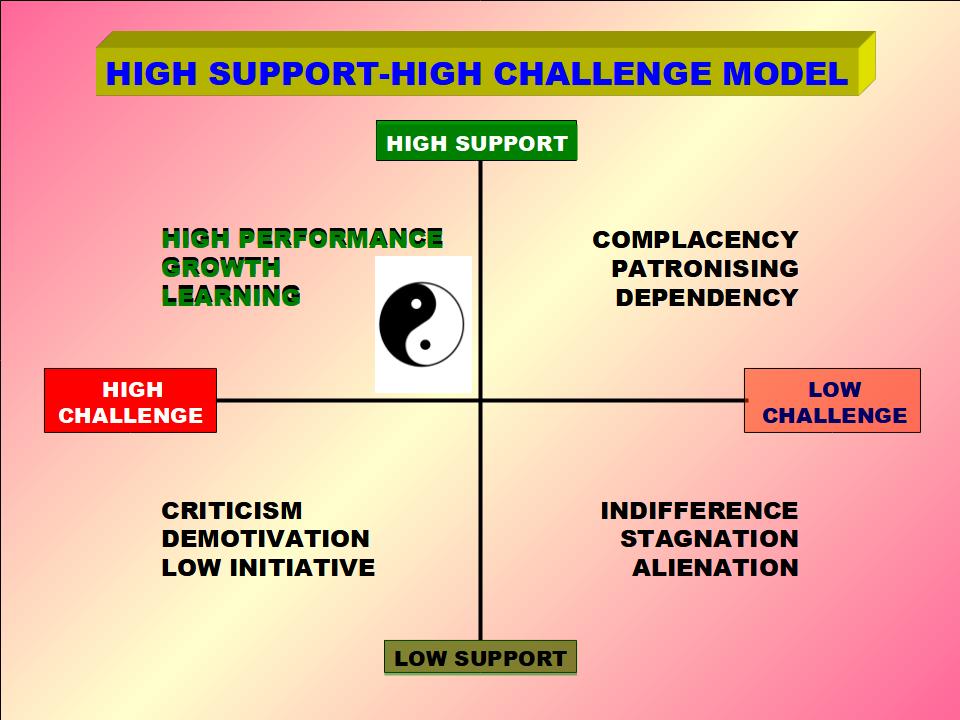to help themselves,
to release and realise more of their potential
Dennis Martin Consultants
Contact us and see how we can work together and create a path to the future that you, your people and your business deserve.
- home index page
- benefits of mentoring
- why mentoring is important
Why Mentoring Is Important Is Because It's a Positive Change Agent with High Return on Investment: a 'Win-Win'
Page Key Points
On this Why Mentoring Is Important page you will learn:
* some examples of mentoring success experienced by leading businesses
* how mentoring yields stand-alone benefits for mentees, mentors and the business
* how mentoring also yields significant benefits opportunities to improve culture
* how mentoring is like an acorn from which very big oak trees may grow
Why Mentoring Is Important as Experienced by Some Leading Businesses
Employee Engagement, Alignment and Loyalty
Why Mentoring Is Important is because it fosters the engagement of employees in their work and their business, creates alignment of both and boosts loyalty to their employer.
According to an Emerging Workforce Study, 35% of employees who do not receive regular mentoring look for another job within 12 months.
The costs involved in replacing leavers and recruiting new employees are significantly reduced as a result of effective mentoring.
Employee Attitudes and Behaviours
According to a Deloitte Millennial Survey, 68% of millennials who were intending to stay with their organization for more than five years had been mentored. The 32% who did not express this view had not had a mentoring experience.
Why mentoring is important in this case is because mentees communicated more positive attitudes, and intended behaviours, towards their employer then did non-mentees.
Leadership Development
Why mentoring is important is because according to HR magazine, 50% of General Electric's executives have been through their mentoring programme: a 2-year leadership programme, in which recent graduates work with senior-level mentors.
As a return on investment, this 'home-grown' leadership development mentoring scheme is very impressive.
And according to Chronus, 71% of Fortune 500 companies have mentoring programmes, primarily to groom up-and-coming employees for executive roles.
Investing in Employee Development
A Sun Microsystems comparison of personnel over a 5-10 year period found that mentees were promoted five times more often and mentors six times more often than individuals not involved in a mentoring programme.
Why mentoring is important in this example is because although it was an investment in people it was also a major investment in the future of the business and the futures of the employees who were involved.
Mentoring was very effective in developing talent in people and realising more of their potential.
Retention Rate Savings
In Xerox's mentoring programme, participants showed significantly higher retention rates, saving $5.6 million dollars in potential employee turnover costs according to The Journal of Applied Psychology.
On the Other Hand.....
According to a Gallup report, worldwide, just 15% of employees are engaged in their jobs – that is, are emotionally committed to and focused on creating value for their organizations every day.
Given that highly engaged and aligned staff are typically more productive, customer-focused, and profit-generating, only 15% suggests a significant level of untapped potential (i.e. unrealised possibilities) with major benefits and high return on investment outcomes.
Why mentoring is important is because there is a massive opportunity to release and realise potential in organisations with significant benefits to all involved: mentees, mentors, leaders, businesses and their stakeholders.
Mentoring is a well-tried, well tested methodology yielding tailor-made, specific outcomes / benefits at the 'cellular level' of mentor and mentees AND also creating a very effective entry-point to organisational development and culture change if needed.
Data from the U.S. Federal Reserve suggests that, as of 2021, manufacturing industries are operating at around 74% of full capacity on average.
Although this is not a direct measure of 'organizational potential', it does indicate unrealised possibilities (i.e. unused potential) in terms of physical resources and production capabilities.
Mentoring is a development resource that seems to be an unrealised possibility for far too many organisations, big and small.
I think of it as being like an acorn, quite small when first 'planted', but if done the 'right' way (e.g. encouraging self-management and self-ownership of mentoring by mentors and mentees), it can grow and create significant opportunities for organisational development, change and culture change.
Using the model below, and others, it will also help mentee(s) to grow and release and realise more of their potential, the true purpose of mentoring.
Why mentoring is important is because, as the old saying goes: from small acorns big oak trees grow, which may be in the form of people or businesses or both.

Bearing the above in mind, let's conclude by summarising why mentoring is important to key sectors of a business:
*** Why mentoring is important to the Mentor and Mentee(s):
Both probably will come into mentoring with an 'agenda', expectations, maybe goals etc. Providing that these things are valid, safe, legal etc., the mentors and mentees 'needs' must be exceeded.
By empowering mentors and mentees to take self-ownership of and self-'manage' their mentoring process, they will benefit in terms of confidence, growth, self-belief, self-image and intrinsic motivation for release and realisation of more of their potential (e.g. in contributing more to improving the business through, for example, continuous improvement ideas: £40,000 in one month being reported by one small business).
They will also learn about working as partners in a synergistic team (even if it's only two people), continuous learning and improvement and how to have fun whilst doing it.
*** Why mentoring is important to Local Leaders:
Local leaders can benefit by sharing some or all of the learning and training experiences we create and coach through with mentors and mentees.
In particular, their self-belief, confidence, interpersonal relations, teamworking and motivation will all be beneficially affected.
They will also learn the value and benefits of valuing differences and of encouraging informal personal leadership by others, especially the mentor and mentees.
*** Why mentoring is important to the mentees' peers and colleagues:
We encourage mentors and mentees to share their learnings with the mentees' peer groups and other colleagues to minimise or avoid the likelihood of peers perceiving changes that may emerge in the mentee or by the mentee negatively.
We have learned that when peers understand the mentoring process and some of its key models, and when they see for themselves the benefits emerging that they will gain from, they will let go any feelings of threat or fear and start asking, 'when can we do some of this?' - that is, a huge surge in receptivity that will facilitate future development and change activities.
*** Why mentoring is important to the Organisation:
Irrespective of how large or small the organisation, or how modest or business-wide the need, mentoring is a versatile, flexible, influential process, especially if it includes our approach of self-ownership and self-management by mentors and mentees.
This means that where and whenever appropriate, emerging from the process may be a microcosm of a desired culture that has increased receptivity to future changes, demonstrated transparently real benefits to those involved or connected, and established a role model of releasing and realising more potential of the business and of its people that others can follow.
This facilitates a focus on future unrealised possibilities rather than present unresolved frustrations and is especially positive and powerful in empowering employees to be architects of their own future through self-ownership and self-management processes.
*** Why mentoring is important to the investor, Sponsor, CEO, M.D. or small business owner:
This inevitably boils down to the ROI (return on investment) outcomes, some of which will be measurable (e.g. £40,000 cost reduction from emerging continuous improvement ideas above or the examples quoted at the beginning of this page) and some of which won't (e.g. increase in employee morale or the release and realisation of employees' potential that then facilitates the release and realisation of the business' potential).
Other benefits, which may be difficult to measure, are often longer-term such as employee retention, leadership development, company image and reputation.
When mentoring occurs, at the time creating specific more immediate beneficial results, it may not be obvious or consciously intended that the investment made was, in fact, an investment in mentoring AND an investment in the future of the business and its people.
Why mentoring is important is because, unliked many other initiatives, it often yields very worthwhile surprise benefits and opportunities, and usually without any nasty side-effects.
Go to our Home Page
If you would like some more information please click any or all of the links below:
Page Summary
On this Why Mentoring Is Important page you have learned:
* some examples of mentoring success experienced by leading businesses
* how mentoring yields stand-alone benefits for mentees, mentors and the business
* how mentoring also yields significant benefits opportunities to improve culture
* how mentoring is like an acorn from which very big oak trees may grow
We've covered a lot of ground on this page and I just want to THANK YOU for visiting my web site and reading this page. Your attention is much appreciated.
I hope you found the page as worthwhile and interesting reading it as I did writing it.
Kindest regards,
Dennis
